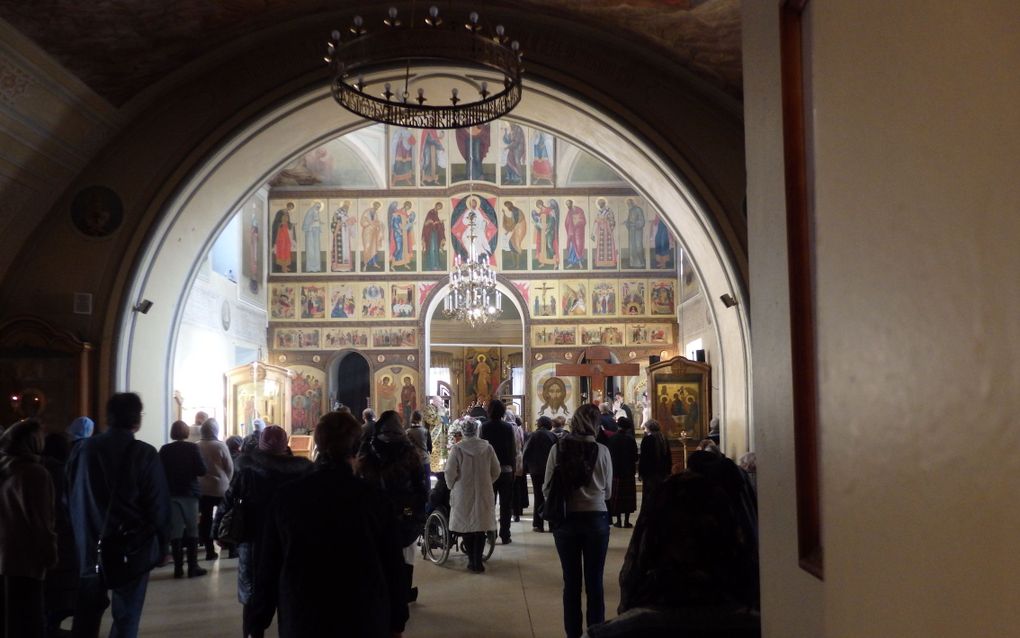Russian church does not easily admit abuse
Child abuse is not uncommon in the Russian Orthodox Church. Following the example of the Roman Catholic Church, the Orthodox Church has also tightened the rules. But is that enough?

The fact that Pope Francis tightened the penalties for priests guilty of sexually abusing children last week has not gone unnoticed in Russia. The Russian church leadership also decided to make some changes to canon law.
Spokesman for the Russian Orthodox Church (ROK), Bishop Savva (Tutunov) of Zelenograd, explained this week how the Russian Church deals with abuse in the church: “The system of church discipline in the Roman Catholic Church has always been more detailed and legally more refined than in the Orthodox Church. And our terminology differs.”
Nevertheless, according to Savva, even in the Russian Church, it is now clear that abuse is incompatible with the priesthood.
Only words
Still, for the time being, it remains only words, says priest Andrey Kuraev. He was expelled from the ROC at the beginning of this year because of criticism of the church system. According to him, paedophilia and homosexuality are present in the highest circles of the church. There have been a few criminal cases in recent years, but according to Kurajev, that is just the tip of the iceberg.
“For men, it is always psychologically more difficult to tell that they are victims of rape,” the church dissident states. “Furthermore, it is challenging to go against the system. It is the word of a teenager against a priest who is often part of the local elite. That’s tough.”
Then there’s the corrupt police system and ties to the elite. So, there is fear and shame, Kurayev explained.
Celibacy less important
For a long time, the Russian Church considered itself immune to immoral practices in the church. Unlike the Catholic Church, celibacy is much less important to the Russian clergy. Many priests are simply married, which reduces the urge to commit crimes. At least, that was the theory. However, in recent years, more and more disciplinary cases have come to light in the Russian church as well.
There are plenty of examples. In 2018, Andrey “Meletius” Tkachenko, priest and headmaster of St. Innocent’s Gymnasium in Yakutsk, was sentenced to seventeen years of strict regime. He is alleged to have raped 87 boys; there was evidence of this in 46 cases. The priest was removed from office.
In the same year, in the Leningrad region, an Orthodox priest, Gleb Grozovski, was sentenced to 14 years imprisonment in a penal colony for paedophilia. The court found him guilty of committing sexual acts with three girls under 14 in an Orthodox holiday camp.
Nevertheless, the church did not deprive him of his ecclesiastical dignity. According to the St Petersburg diocese, “there was no final decision yet, and there will be an appeal.”
Protection
It often happens that the church protects priests suspected of sexual abuse with children, rather than protecting the children. For example, a priest from the Urals, Nikolai Stremski, raised some 70 children, was accused of raping six minors in 2019. However, the church urged the media not to call the archpriest Stremski a paedophile until the court had ruled.
Metropolitan Hilarion, head of external church relations at the Moscow Patriarchate, said accusations could be used to manipulate clergy: “I think the church has done enough to admit the crimes of some of its ministers committed in the past. But we should not forget that this issue is now being used against the Catholic Church, including certain adventurers who are just trying to make money from this.”
The most recent case was an abbot of a church in the Jewish Autonomous Region. The priest, Spiridon (Abramov), is allegedly guilty of making pornography and sexually abusing children under the age of 14. A total of 53 boys are involved in the case. In addition, the children were forced in using alcohol and drugs. When he was arrested in 2019, a collection of “objects with a far from spiritual purpose” was seized.
This article was published previously in the Dutch Reformatorisch Dagblad on June 12th 2021